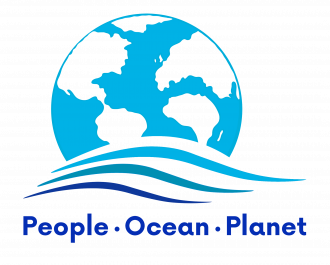
People Ocean Planet is built on the best available scientific knowledge, developing a diverse range of projects and partnerships – all interconnected by the central aim of tackling the human dimensions to the health of the ocean and the planet.

People Ocean Planet’s mission is to drive ocean literacy and behavioural change across society to tackle major threats to the ocean, contributing to positive and lasting changes.
Tackling the behavioural roots of overconsumption, waste and human choices helps to reduce and reverse the decline of marine ecosystems, wildlife and the climate, also stimulating action from governments and businesses. Our network of experts increasingly recognise that we must do this within a single human generation.
The 2021 UN Conference of Parties 26 (CoP26) has been a pivotal moment for political negotiations to tackle the global climate emergency. Ocean and behavioural issues figure heavily in the challenges and solutions; so before, during and after CoP26 our outreach and projects will seek to embolden ambitions for the transformative change we need to see.
